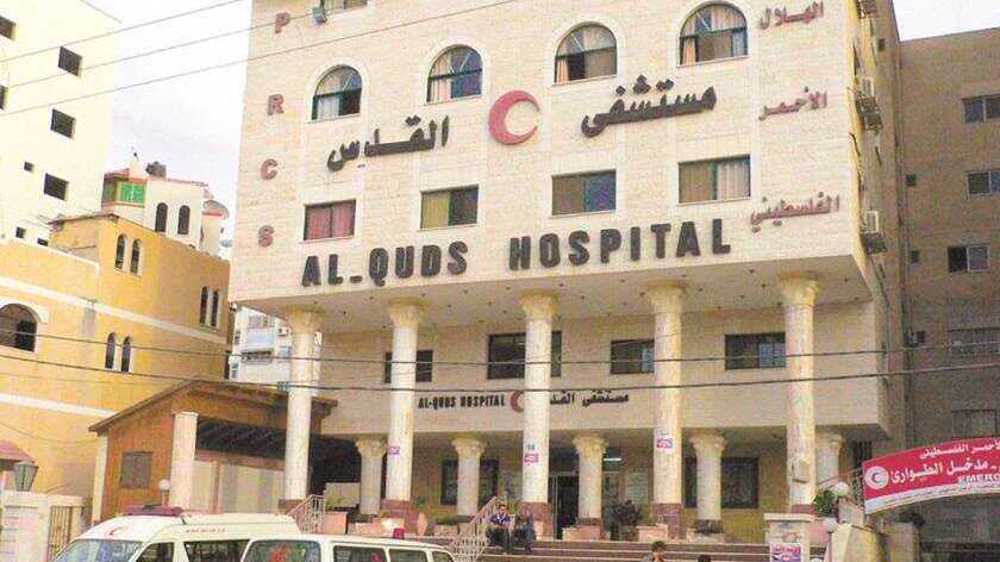The Palestine Red Crescent Society (PRCS) has issued a distress call, warning that over 12,000 displaced individuals, predominantly women and children, are facing “imminent danger” as Israeli forces have threatened to bomb Al-Quds Hospital and demanded an immediate evacuation. The tension in the region has escalated to a point where innocent lives hang in the balance, waiting for swift international intervention to avert another potential catastrophe, echoing the tragic incident at Al-Ahli Hospital. This report delves into the grave situation unfolding in the Palestinian territories.
A Dire Situation Unfolds
The PRCS, a humanitarian organization at the forefront of providing medical assistance in the conflict-ridden region, sounded the alarm regarding the perilous state of thousands of displaced civilians. With the shadow of imminent airstrikes looming over Al-Quds Hospital, innocent lives are caught in the crossfire, anxiously waiting for a glimmer of hope. The hospital, a vital lifeline for the wounded and vulnerable, now faces the threat of being reduced to ashes if the warnings issued by Israeli forces become a grim reality.
Plea for Urgent International Intervention
Amid the escalating crisis, the PRCS has made an urgent appeal to the international community, urging swift and decisive action to prevent another humanitarian catastrophe akin to the tragic events at Al-Ahli Hospital. The organization’s plea underscores the critical need for immediate international intervention to safeguard the lives of the thousands now at risk. The plea also brings into focus the ever-growing urgency for a lasting resolution to the longstanding Israeli-Palestinian conflict, which continually takes a toll on the innocent civilians trapped in its crosshairs.
Echoes of a Dark Past
The stark situation at Al-Quds Hospital draws haunting parallels to previous instances in the region, especially the tragic events at Al-Ahli Hospital. These distressing episodes underscore the recurring cycle of suffering faced by civilians in the Palestinian territories, where conflict-induced peril can strike at any moment. The international community’s response to this latest crisis will not only dictate the fate of those in immediate danger but also shine a spotlight on the urgency of achieving a sustainable and just peace in the region.
The international community faces a moral imperative to act urgently and decisively to ensure the safety and well-being of the displaced civilians, especially the women and children, now teetering on the brink of catastrophe. A repeat of past horrors is a stark possibility, and it is only through immediate and collective efforts that such a calamity can be averted.
As the tension in the region persists, the appeal by the PRCS for international intervention becomes increasingly resonant. The urgent need to de-escalate the situation, secure the safety of the displaced, and address the root causes of the ongoing conflict cannot be overstated. The fate of the thousands at risk lies in the balance, and the world watches with bated breath for the international community’s response to this unfolding tragedy.
In conclusion, the imminent danger faced by over 12,000 displaced individuals near Al-Quds Hospital is a somber reminder of the continuing turmoil in the Palestinian territories. The urgency of the situation cannot be overstated, and the international community’s response holds the key to averting another catastrophic event. It is a moment that demands immediate action, compassion, and a renewed commitment to achieving lasting peace in the region.















